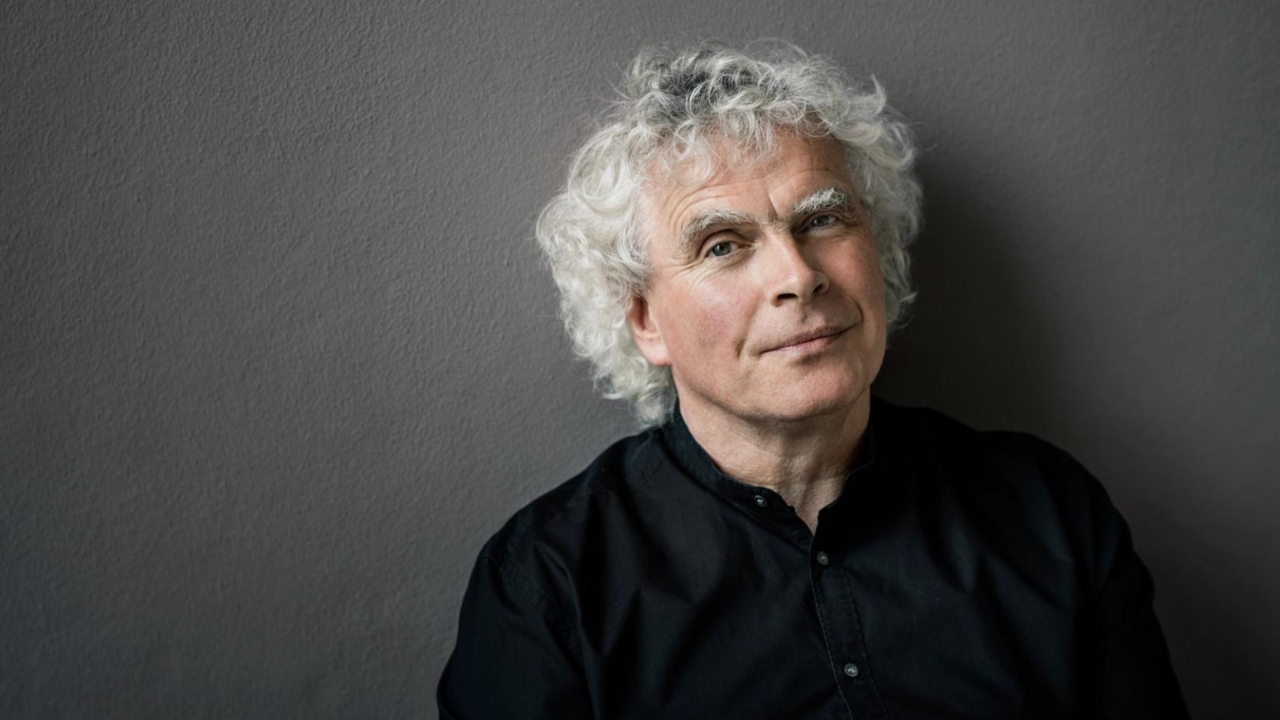Events and Tickets
Spotlight: Sir Simon Rattle

Sir Simon Rattle was not yet out of his teens when his success in the John Player International Conducting Competition in 1974 announced a startling new conducting talent.
Fast forward five decades and Rattle has long out-lived the contest that brought him to attention, recognised and renowned now around the world as a conductor without compare for his reach and insights on the podium, his reimagining of the core repertoire, his championing of new music, and as a staunch advocate for music education.
Born in 1955 in a Liverpool soon to become music’s focal point as The Beatles ushered in and defined the 1960s, the teenage Rattle’s own love of music took him in a different direction, studying piano and violin, and playing percussion with the Merseyside (now Liverpool Philharmonic) Youth Orchestra.
His competition success – in the year he graduated from the Royal Academy of Music – led to his appointments as Assistant Conductor of the Bournemouth Symphony Orchestra and, from there, back home to the Royal Liverpool Philharmonic.
Aged 21, he made his BBC Proms debut conducting the London Sinfonietta. The following year he became the youngest ever Principal Conductor of the City of Birmingham Symphony Orchestra, spending 18 years there to transform the Orchestra’s – and his own – fortunes.
Such was Rattle’s impact on British classical music that the conductor-composer Kenneth Woods, looking back on the period, seemed to compare him with his Liverpudlian peers, The Beatles, hailing him ‘a pop star who replaced the stuffy old maestro’.
He proved equally transformative as Chief Conductor of the venerable Berlin Philharmonic, the most sought-after job in classical music, from 2002-2018, and as Music Director of the London Symphony Orchestra from 2017-2024. More recent appointments include Chief Conductor of the Bavarian Radio Symphony Orchestra and Principal Guest Conductor of the Czech Philharmonic.
Put alongside all of that more than 100 recordings that have included landmark accounts of Mahler, Brahms, Bruckner and Stravinsky together with significant premieres by Thomas Adès, Mark-Anthony Turnage, Jörg Widmann and others, and Rattle can readily claim to have been at the centre and the forefront of classical music over the past half-century.
His association with the Orchestra of the Age of Enlightenment dates back to its founding in 1986, when he conducted Mozart’s Idomeneo with the period instrument ensemble. In 1992 he was made its Principal Guest Conductor. He returns now to the National Concert Hall in the orchestra’s 40th year as its Principal Artist with violist Timothy Ridout for two masterpieces by Berlioz, a composer who has long fascinated Rattle, drawn to music he describes as ‘seething with drama’.
Inspired by Lord Byron’s poetry and commissioned by the virtuoso soloist Niccolò Paganini, Harold in Italy depicts the various encounters of a wandering ‘melancholy dreamer’ (voiced by the viola) on his lonely travels in the Italian mountains.
The Symphonie fantastique, a feverish, opium-laced phantasmagoria of love pursued but always out of reach, shows Berlioz, says Rattle, as a ‘determined innovator and quintessential Romantic’.
